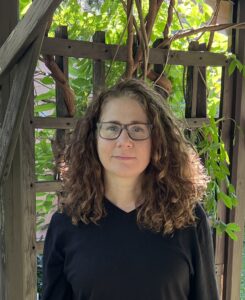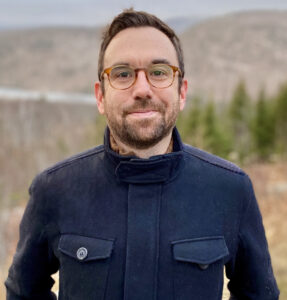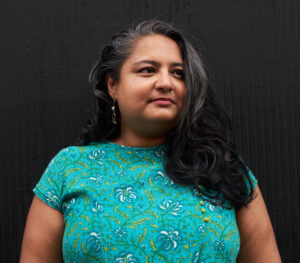Earlier this May, an Esquire article by Kate Dwyer called “Why Are Debut Novels Failing to Launch?” channeled the fear of debut novelists everywhere: What happens if no one buys my book?
 Book sales are an important way for editors and agents to gauge whether to invest in an author. If her first novel doesn’t sell, the debut novelist fears, will she get a crack at a second? Gone are the days when publishers were willing to take a long view on an emerging novelist in whom they believed, as Dan Sinykin, author of Big Fiction: How Conglomeration Changed the Publishing Industry and American Literature, pointed out in a New York Times essay on Cormac McCarthy, whose “first five novels, published over two decades, earned him considerable critical respect but were commercial failures.”
Book sales are an important way for editors and agents to gauge whether to invest in an author. If her first novel doesn’t sell, the debut novelist fears, will she get a crack at a second? Gone are the days when publishers were willing to take a long view on an emerging novelist in whom they believed, as Dan Sinykin, author of Big Fiction: How Conglomeration Changed the Publishing Industry and American Literature, pointed out in a New York Times essay on Cormac McCarthy, whose “first five novels, published over two decades, earned him considerable critical respect but were commercial failures.”
In today’s literary marketplace, agents and editors can’t afford to give an author the benefit of two decades to allow her career to flower, no matter how good her work is. There’s a thin margin of error between success and failure—books cost real money to produce, after all. If you’re an editor or agent (or publisher), your job is on the line when it comes time to bet on an author, and you have just as many bills to pay as everyone else. Authors have to prove they’re worth the investment; this is true whether you publish with one of the Big Five, a small press, or a university press. But what is the magic sales number an author needs to reach to prove their worth? 1,000? 2,000? The precise sales figure likely varies from agent to agent, publisher to publisher, but one thing is clear for nearly all debut novelists, no matter who publishes them: getting noticed is both a colossal challenge and paramount to a book’s success.
This fact gets to the heart of every marketing effort writers make. Per an unnamed editor in Dwyer’s article, the “three key publicity achievements” debut novels need in order to hit it big are “a major book club”; “a boost from Barnes & Noble, Amazon, Indie Next and/or Book of the Month”; and “a major profile.”
For writers who aren’t household names—who can’t afford to hire a publicist to pitch stories, set up events, or build buzz around your book; who are publishing with small or university presses that don’t have big publicity budgets—these achievements may seem like the literary equivalent of climbing Mt. Everest. As Kathleen Schmidt pointed out recently in her Publishing Confidential substack, when discussing the predominance of Big Five titles and book reviews, “The ‘smaller’ the book and publisher, the more challenging it is to get attention.” Even when your publisher is sending ARCs to review outlets, when you publish with a small press you probably won’t see many (if any) reviews of your book.
So how do writers ensure the kind of sales that will position them for a second novel? To get a sense of how others approached this question, I spoke with three who’ve recently debuted—or will soon—with small and university presses.
 Aggeliki Pelekidis’s unagented debut, Unlucky Mel was published in September by Three Hills, an imprint of Cornell University Press. The story follows the trials and tribulations of the eponymous Mel, a young Ph.D. candidate at a small-town university in upstate New York, as she navigates the final year of her studies. Pelekidis spent nearly eight years writing the book while also balancing a difficult teaching load, a famil iar occupational hazard for many debut novelists. Holding a physical copy is one measure of success, she points out, a fact that’s all-too easily overlooked in a writer’s urgency to sell, sell, sell. But of course that thrill wears off, especially when your publishing future depends on your ability to “shift units.” Luckily for Pelekidis, she had two distinct advantages when it came to promoting her debut: 1) Cornell University Press employs PR staff to do media outreach, submit books to awards, etc., and 2) before enrolling in graduate school, she spent years as a marketing communications executive in New York City. Even though her career had nothing to do with book marketing, her experience in the field gave her the skills to create a solid plan—one that she could share with Cornell’s team—without hiring an expensive publicist. Ultimately, she says, she’ll measure success “in terms of enough sales to publish other books and to possibly land an agent.” The figure she’s striving for is 5,000 units.
Aggeliki Pelekidis’s unagented debut, Unlucky Mel was published in September by Three Hills, an imprint of Cornell University Press. The story follows the trials and tribulations of the eponymous Mel, a young Ph.D. candidate at a small-town university in upstate New York, as she navigates the final year of her studies. Pelekidis spent nearly eight years writing the book while also balancing a difficult teaching load, a famil iar occupational hazard for many debut novelists. Holding a physical copy is one measure of success, she points out, a fact that’s all-too easily overlooked in a writer’s urgency to sell, sell, sell. But of course that thrill wears off, especially when your publishing future depends on your ability to “shift units.” Luckily for Pelekidis, she had two distinct advantages when it came to promoting her debut: 1) Cornell University Press employs PR staff to do media outreach, submit books to awards, etc., and 2) before enrolling in graduate school, she spent years as a marketing communications executive in New York City. Even though her career had nothing to do with book marketing, her experience in the field gave her the skills to create a solid plan—one that she could share with Cornell’s team—without hiring an expensive publicist. Ultimately, she says, she’ll measure success “in terms of enough sales to publish other books and to possibly land an agent.” The figure she’s striving for is 5,000 units.

Like other novelists, part of her marketing strategy involves building her author community via social media. Pelekidis encourages writers to “develop [a] social media platform in a genuine way that isn’t just about selling [the] book. Let people get to know you a little,” she says. “Give them a taste of your writing style and personality… I have a modest platform on social media, where my posts are less about my own writing and more about my gardening, pets, books I’m reading, and cooking.”
Posting regularly on social media is an unavoidable activity for any debut novelist looking to promote their work to a broad audience; in her Esquire report, Dwyer goes so far to suggest that “becoming a bona fide social media influencer” is a necessity—a claim that seems overblown. For some writers, social media may also be the most vexing way to reach readers. If you don’t have the time or energy to post regularly or develop a social media strategy that works, it can feel like shouting madly into a great void when you do post. Being genuine is, as Pelekidis says, critical.
 For Danny Goodman, who began writing his debut novel, Amerikaland, in 2017, “reaching readers, writing something that truly connects with [them], makes them feel seen, is the best success I could imagine.” Published in June by Leftover Books, Goodman’s contemporary dystopian novel explores the rise of Nazism in a reimagined present-day version of the United States through the unique point of view of two professional athletes: Sandy, a gay Jewish baseball star and Sabine, a world-famous German tennis player and the daughter of a high-ranking neo-Nazi official. The pair are best friends, setting the stage for some inevitable high-wire—and particularly timely—tension.
For Danny Goodman, who began writing his debut novel, Amerikaland, in 2017, “reaching readers, writing something that truly connects with [them], makes them feel seen, is the best success I could imagine.” Published in June by Leftover Books, Goodman’s contemporary dystopian novel explores the rise of Nazism in a reimagined present-day version of the United States through the unique point of view of two professional athletes: Sandy, a gay Jewish baseball star and Sabine, a world-famous German tennis player and the daughter of a high-ranking neo-Nazi official. The pair are best friends, setting the stage for some inevitable high-wire—and particularly timely—tension.
Goodman, who is not currently represented by an agent, submitted Amerikaland to novel contests and was longlisted multiple times before it was sold to Patrick Trotti, publisher of Leftover Books. Trotti encouraged Goodman to lead the book’s marketing efforts, and Goodman’s strategy was “to promote the novel as organically as possible” by posting on social media, submitting the book for reviews, and applying to festivals and awards. “It has been a second full-time job,” he says, but one he’s also thoroughly enjoyed. “I’m really proud of this book, and this process has allowed me to channel that energy into something positive.”

As simple as it may seem, his strategy has also paid dividends. Amerikaland was featured by Debutiful and Write or Die; reviewed at Kirkus and the Jewish Book Council; and garnered strong blurbs. Goodman has already given a number of readings to support the book, including the Brooklyn Book Festival. A book tour is an essential if also challenging prospect for debut novelists; though readings give you much-needed exposure, a book tour often costs a significant amount of money in travel alone, and you’re never guaranteed a large, book-buying audience. Without name recognition, in fact, you might just get a handful of attendees at your events—and spend more than you make.
But Goodman takes a healthy approach to his debut novel experience. “I wrote the book I wanted to,” he explains, “and I’m thrilled with that.”
 Roohi Choudhry’s debut novel, Outside Women, won’t be published by the University Press of Kentucky until March 2025, so she’s just now beginning the process of developing a marketing strategy. Outside Women traces the lives of Sita, an Indian woman from the late 19th century who’s brought to South Africa as an indentured servant, and Hajra, a modern-day Pakistani scholar who escapes from her homeland after being a target of violence. As part of her research, Hajra finds an old photograph of Indian women protesting in South Africa and travels there to learn more about these mysterious protestors. What follows is an interlaced narrative that maps the lives of two characters from different countries and eras.
Roohi Choudhry’s debut novel, Outside Women, won’t be published by the University Press of Kentucky until March 2025, so she’s just now beginning the process of developing a marketing strategy. Outside Women traces the lives of Sita, an Indian woman from the late 19th century who’s brought to South Africa as an indentured servant, and Hajra, a modern-day Pakistani scholar who escapes from her homeland after being a target of violence. As part of her research, Hajra finds an old photograph of Indian women protesting in South Africa and travels there to learn more about these mysterious protestors. What follows is an interlaced narrative that maps the lives of two characters from different countries and eras.
“In some ways,” Choudhry says, “I’ve been working on this novel in my head for a lot of my adult life.” As such, it demonstrates the staying power many stories have on writers—and why debut novelists often plug away at a manuscript year after year despite the long odds of publishing. The first two chapters formed part of her MFA thesis, but the story kept tugging at her, so over the next decade—stealing time on weekends, her lunch breaks, and an occasional writers’ retreat—she revised the novel into what it is today. She even landed her agent in the process.
But now she has to sell it in a different way—to a reading public that doesn’t yet know her or her work. How will she measure the novel’s success? Define your success, a poet friend told her, by setting very specific goals within your control.

What are Choudhry’s specific goals? “I have always wanted to have my work reach the communities I’m part of and that have inspired me,” she says. “Muslim and South Asian folks working toward social justice, and immigrant women who’ve taken non-traditional paths and struggled against patriarchal norms…. I’m connecting with others in my communities, including smaller organizations, and letting those conversations guide me.”
Long term, Choudhry wants her novel to clear a path “to afford me more free time to work on future books.” As part of her still-evolving promotional strategy, she aims to find ways to get the book to teachers and professors, independent bookstores, activists, and community organizations. The University Press of Kentucky has a marketing staff that will help, and the press has timed the book’s publication to coincide with the AWP Conference in Los Angeles. In the end, however, perhaps more than any other marketing strategy, the sales outcome of Outside Women may be decided by the friends, former students, and communities who’ve supported Choudhry for years, what she calls her “hype squad.” Word of mouth is, after all, one of the chief ways books get noticed.
 Shortly after I signed the contract for my own debut novel, The Book of Losman, published October 1 by the small press SFWP, publisher Andrew Gifford emailed me two documents that he shares with every author he publishes: a book marketing 101 document and another on finding your brand. In the first, Gifford helpfully lays out a month-by-month publishing timeline that gives his authors an idea of what to expect and, most importantly, what they need to do to get their book seen and heard. I don’t currently have an agent, and at 50 years old, I’m publishing my debut much later than many others. Like any writer who has toiled in obscurity for years, I’ve got thousands of pages of unpublished fiction cluttering my home office. What I don’t have are any of the key publicity achievements or a sales track record to indicate to future agents, editors, or publishers that I’m worth the risk.
Shortly after I signed the contract for my own debut novel, The Book of Losman, published October 1 by the small press SFWP, publisher Andrew Gifford emailed me two documents that he shares with every author he publishes: a book marketing 101 document and another on finding your brand. In the first, Gifford helpfully lays out a month-by-month publishing timeline that gives his authors an idea of what to expect and, most importantly, what they need to do to get their book seen and heard. I don’t currently have an agent, and at 50 years old, I’m publishing my debut much later than many others. Like any writer who has toiled in obscurity for years, I’ve got thousands of pages of unpublished fiction cluttering my home office. What I don’t have are any of the key publicity achievements or a sales track record to indicate to future agents, editors, or publishers that I’m worth the risk.
I couldn’t really afford to hire a publicist, but because SFWP explores the usual publicity angles—sending out ARCs to the trades, reviewers, awards, etc.—I didn’t have to worry about that. And unlike many other small presses, SFWP also works directly with a secondary rights agent for audio, film, and translation rights.
In the second document, Gifford walks his authors through the question-and-answer process of discovering their “brand.” As I developed my responses, I began to better understand what I wanted to achieve with the book—yes, I wanted people to read it, but I also wanted to establish my professional author’s voice. Together, these two documents helped me to conceptualize my pre-publication phase as a series of steps up to and beyond pub day. By studying them carefully, I was able to develop a marketing strategy while focusing on my strengths as a writer, and I set two achievable goals for myself: 1,000 preorders and an audiobook sale.
Even though I’m active on social media, I am not—nor will I ever be—a social media influencer, so I knew that if I was going to reach my goals I would have to find another way. The Book of Losman is about a literary translator in Copenhagen who gets involved in an experimental drug study to find a cure for his Tourette Syndrome. Because I have a strong interest in longform essays, I broke down each part of the book’s description in order to pitch stories on literary translation, Denmark, and TS—topics I’m uniquely familiar with—at various local and national publications. The publicity “hits” allowed me to demonstrate to Andrew and the secondary rights agent that I was serious about reaching a wide audience, and that led directly to fulfilling one of my goals when audio rights for The Book of Losman were purchased by Dreamscape Media. I don’t know if I’ll make my other goal, or if The Book of Losman will be my only published novel—but at least I’ve given it my best shot.
Fiction writers spend hundreds of unpaid hours drafting, revising, and perfecting their work in the hope that, someday, their novels will be available for the reading public to enjoy. This process lurches writers across the gamut of human emotion, from the joy of daily creation to the misery of repeated rejection to the unbridled euphoria of a book deal—a cycle that often takes years to complete, if at all.
In her report, Dwyer highlights Dan Sinykin’s claim that most books sell fewer than 5,000 copies. Given the sheer volume of books published each year, I don’t doubt this is true. Yet even so, selling 1,000 copies or more of a debut novel is an accomplishment to be proud of—and it likely gets very close to recouping the publisher’s costs to produce the book. A win-win for everyone involved, right? I’d like to think so.









